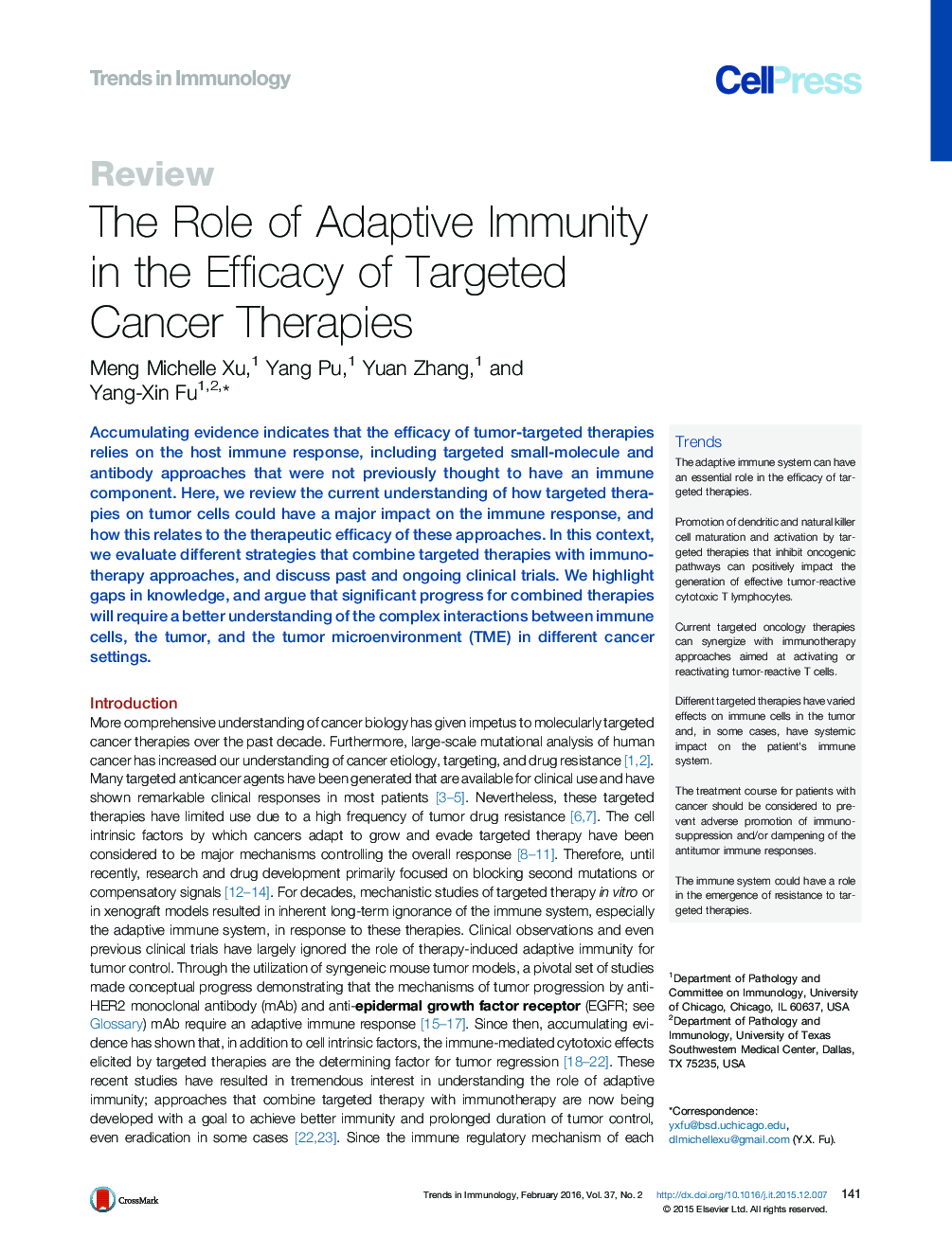| Article ID | Journal | Published Year | Pages | File Type |
|---|---|---|---|---|
| 4359752 | Trends in Immunology | 2016 | 13 Pages |
Accumulating evidence indicates that the efficacy of tumor-targeted therapies relies on the host immune response, including targeted small-molecule and antibody approaches that were not previously thought to have an immune component. Here, we review the current understanding of how targeted therapies on tumor cells could have a major impact on the immune response, and how this relates to the therapeutic efficacy of these approaches. In this context, we evaluate different strategies that combine targeted therapies with immunotherapy approaches, and discuss past and ongoing clinical trials. We highlight gaps in knowledge, and argue that significant progress for combined therapies will require a better understanding of the complex interactions between immune cells, the tumor, and the tumor microenvironment (TME) in different cancer settings.
TrendsThe adaptive immune system can have an essential role in the efficacy of targeted therapies.Promotion of dendritic and natural killer cell maturation and activation by targeted therapies that inhibit oncogenic pathways can positively impact the generation of effective tumor-reactive cytotoxic T lymphocytes.Current targeted oncology therapies can synergize with immunotherapy approaches aimed at activating or reactivating tumor-reactive T cells.Different targeted therapies have varied effects on immune cells in the tumor and, in some cases, have systemic impact on the patient's immune system.The treatment course for patients with cancer should be considered to prevent adverse promotion of immunosuppression and/or dampening of the antitumor immune responses.The immune system could have a role in the emergence of resistance to targeted therapies.
